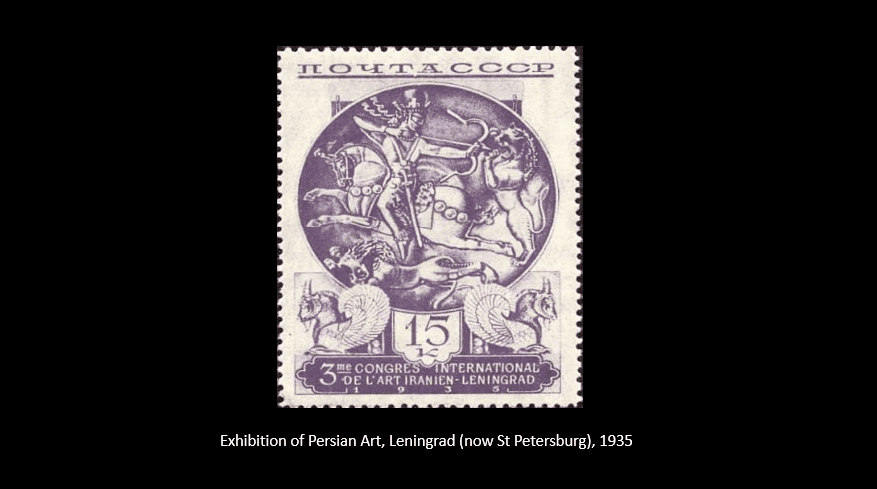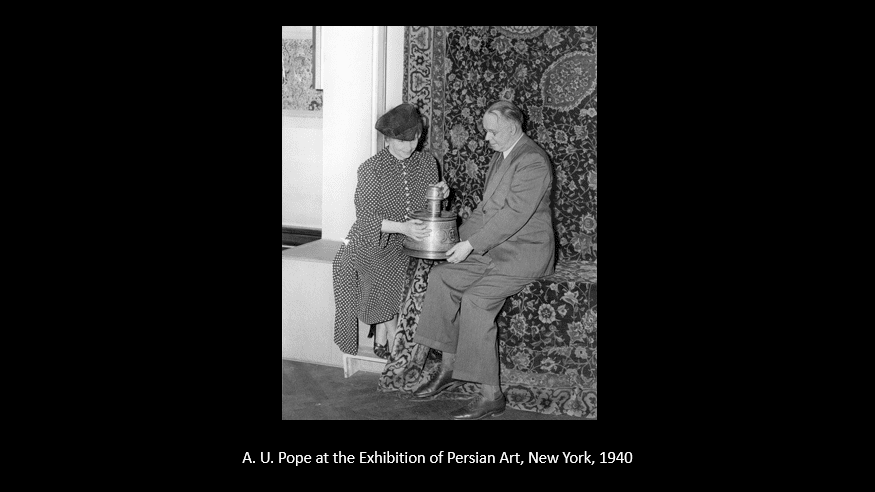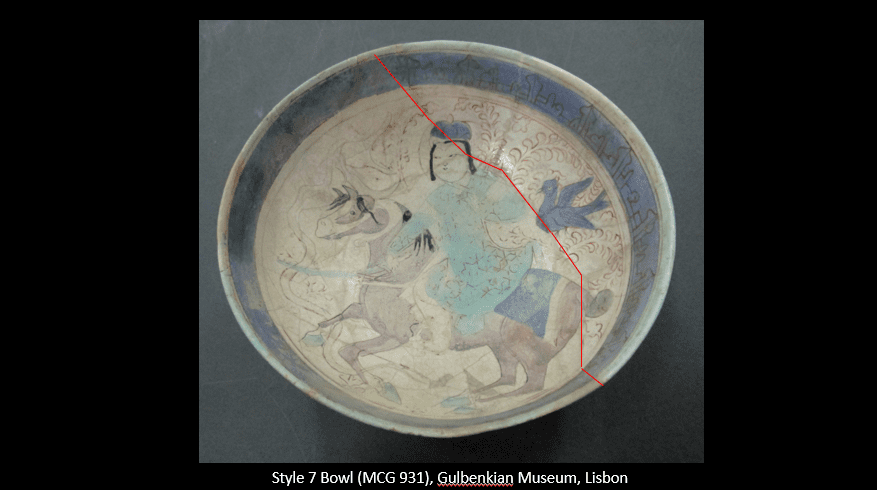Mina’i wares were unknown prior to the late nineteenth century, but by 1940 numerous seemingly complete vessels had been published, displayed, and collected across Europe, North American, and beyond. These wares mark the birth of Persian miniature painting, and feature a wide array of techniques and figural scenes. As virtually all extant examples have been recovered from an archaeological context, and the main element of the decoration is applied over the top of the glaze, most well known pieces experienced major repairs and restoration in the early twentieth century. This lecture is divided into two parts. First, the painting style and most common images are examined. Narrative scenes and common motifs, primarily on fragmentary but unrestored pieces from a wide range of collections, will be shown. This is followed by an examination of the process of rediscovery, display, publication and restoration that led to mina’i wares being relatively well known, yet still somewhat poorly understood by the middle of the twentieth century. A particular focus is on the collecting practices of Calouste Gulbenkian, one of the earliest collectors of these wares, and his is the only collection that remains intact and with a full archive of the documents related to the acquisition of the material
Below are the accompanying images for the audio recording of Dr. McClary’s lecture on mina’i wares.
Part I: Overview of mina’i ware in the 13th century (dating, decorations, process of discovery)



7.20 – Mina’i composition, scale, creation process 
8.50 – Form 
9.15 – Technique 
10.27 – Content of what is depicted, most common scenes being the enthroned ruler. 
12.19 – Unique visual representation of stories, Shahnameh 
14.47 – Earlier depictions reflect a long continuity of Iranian art and history 
16.00 – Reading fragmentary pieces 
17.13 – Mina’i marks the birth of miniature painting 
19.03 – Mina’i found in Gurgan 
20.39 – Distribution 
21.16 
22.01 
22.14 
22.37 – Examples of tiles produced 
22.36 – Further reaching sample found
Part II: Collection, Display, and Restoration of mina’i wares

25.18 – First pieces to be recorded/entering a major collection 
26.35 
27.02 
27.35 – Louvre Collection 
28.00 
28.25 – the Metropolitan Museum of Art, New York 
28.50 – the Fletcher Bequest (1917) 
29.33 – First piece of mina’i to be published in the United States (by Valentiner) 
30.05 – The Freer Gallery (Washington, D.c.) 
31.30 – First visual publication of the mina’i 
32.08 – Dikran Kelekian Khan 
33.56 – Dikran’s publications on mina’i 
34.21 – Introduction of colour images 
35.31 – Publication of Rivieres, Le Ceramique dans L’Art Musulman (Paris, 1913) 
36.32 – Publication by Reifstahl (1922) 
37.37 – Arthur Upham Pope 
38.49 – Ackerman and Pope Survey 
40.22 – Letter from Pope to Gulbenkian (1934) 
41.06 – Gulbenkian 
42.25 – Gulbenkian’s fragments 
44.29 – Correspondence 
45.27 – Pieces acquired by Gulbenkian 
45.47 
46.14
Part III: Exhibitions

48.05 – First major exhibition to iknclude mina’i 
48.59 – International Exhibition of Persian Art 
49.49 – Exhibitgion in Russia (1935) 
50.38 – Pope and Helen Keller (New York, 1940)
Part IV: Repair and Restoration

51.20 – Use of plaster 
53.00 Use of x-rays 
53.38 – Unglazed clay jug 
54.18 
55.29

















































